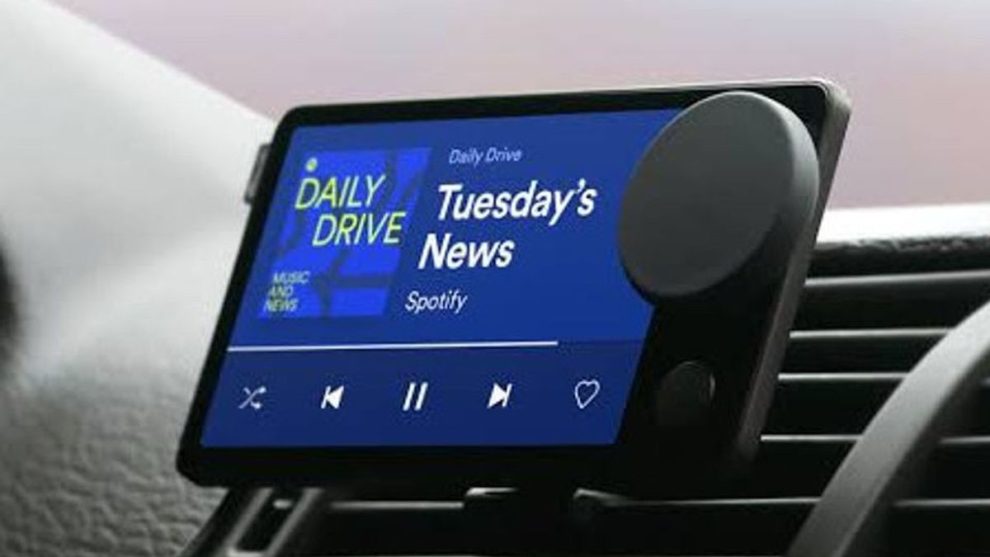Spotify is now offering refunds for its discontinued Car Thing in-car streaming device. This comes after a wave of backlash from users and a class-action lawsuit alleging the company misled consumers and failed to offer proper compensation when announcing the device’s bricking.
From Innovation to Frustration: The Car Thing’s Short-Lived Journey
Launched in February 2022, the Car Thing was Spotify’s attempt to bridge the gap between phone apps and dedicated in-car entertainment systems. The voice-controlled device allowed users to access their Spotify library, podcasts, and other audio content with ease, all while keeping their phones safely tucked away.
Initial reception was mixed. While some praised the convenience of voice controls and a dedicated interface, others criticized the device’s reliance on a phone connection and its somewhat clunky design. Despite these mixed reviews, Spotify continued to push the Car Thing, touting its potential to capture a significant share of the in-car audio market.
However, in May 2024, Spotify abruptly announced the Car Thing’s discontinuation. What caused more frustration than the shutdown itself was the revelation that the devices would be rendered unusable through a software update by December 2024. This essentially “bricked” the devices, leaving users with a useless piece of hardware and a sense of betrayal.
A User Backlash and a Lawsuit Emerge
The decision to brick the Car Thing sparked immediate outrage among users. Many felt misled by Spotify, having purchased a device with the expectation of long-term use. The lack of refunds or alternative solutions only fueled the frustration.
This discontent culminated in a class-action lawsuit filed in the U.S. District Court for the Southern District of New York. The lawsuit alleged that Spotify’s actions constituted unfair business practices and deceptive advertising. It demanded refunds for all Car Thing purchases and an injunction preventing the company from bricking the devices.
A Shift in Strategy: Spotify Offers Refunds
Facing mounting pressure from both users and the legal system, Spotify has seemingly changed course. In a recent email to some Car Thing owners, the company announced a refund program. Users with proof of purchase can now claim a refund for their device.
However, the situation remains murky. The email communication has been inconsistent, with some users reporting difficulty receiving refunds or being offered alternative compensation like free months of Spotify Premium. Additionally, Spotify hasn’t publicly addressed the lawsuit or made a clear statement about the future of the bricked devices.
Unanswered Questions and Lingering Discontent
While the availability of refunds is a step in the right direction, several questions remain unanswered. The lawsuit against Spotify is still ongoing, and the company’s continued silence regarding the bricking process adds to the user dissatisfaction.
Some argue that Spotify should offer additional compensation beyond just refunds, considering the sudden obsolescence of the device. Others question the company’s long-term commitment to in-car audio solutions, leaving them wary of future hardware ventures.

Lessons Learned: The Importance of Transparency and Consumer Trust
The Car Thing saga serves as a cautionary tale for tech companies venturing into hardware. When introducing a new product, clear communication about its lifecycle and potential future updates is crucial. The decision to brick the Car Thing not only frustrated users but also damaged Spotify’s reputation for transparency and consumer trust.
Moving forward, Spotify needs to address the outstanding issues surrounding the Car Thing. Providing clear answers about the lawsuit and the bricking process would go a long way in restoring user confidence. Additionally, a more transparent approach to hardware development, with a focus on long-term value and user experience, will be necessary if the company wants to regain its footing in the in-car audio market.
The Future of In-Car Audio: A Post-Car Thing Landscape
The Car Thing’s demise doesn’t necessarily signify the end of in-car audio innovation. Companies like Apple CarPlay and Android Auto continue to refine their smartphone-based solutions. Additionally, advancements in voice assistant technology and car connectivity could pave the way for new and even more integrated in-car audio experiences.
However, the Car Thing saga serves as a reminder of the challenges companies face in this space. Balancing innovation with user needs and expectations will be key for any future in-car audio solution to succeed. Only time will tell if Spotify will learn from its mistakes and attempt to re-enter this market, or if the Car Thing will stand as a cautionary tale for companies considering similar ventures.
















Add Comment